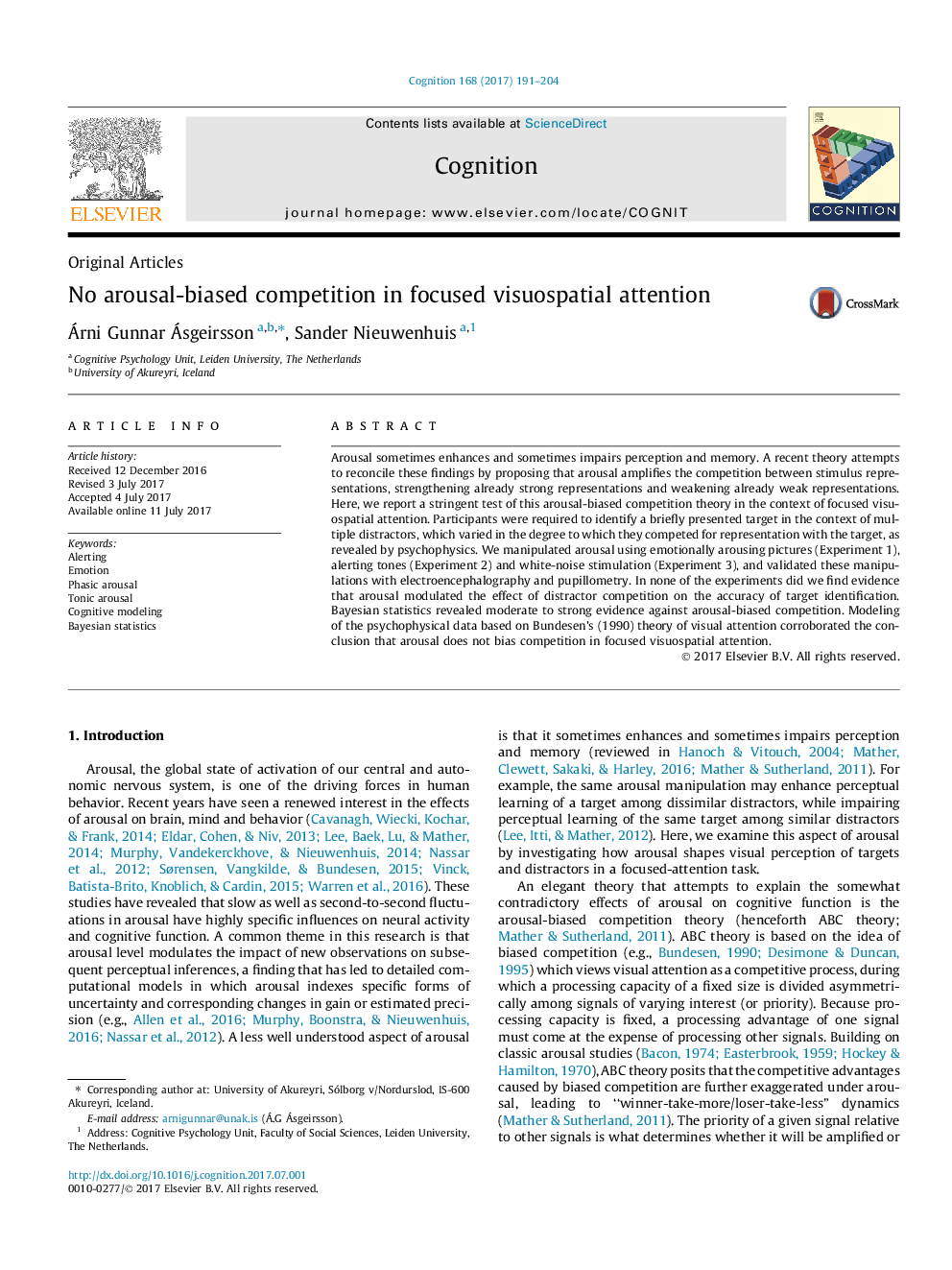| Article ID | Journal | Published Year | Pages | File Type |
|---|---|---|---|---|
| 5041433 | Cognition | 2017 | 14 Pages |
Arousal sometimes enhances and sometimes impairs perception and memory. A recent theory attempts to reconcile these findings by proposing that arousal amplifies the competition between stimulus representations, strengthening already strong representations and weakening already weak representations. Here, we report a stringent test of this arousal-biased competition theory in the context of focused visuospatial attention. Participants were required to identify a briefly presented target in the context of multiple distractors, which varied in the degree to which they competed for representation with the target, as revealed by psychophysics. We manipulated arousal using emotionally arousing pictures (Experiment 1), alerting tones (Experiment 2) and white-noise stimulation (Experiment 3), and validated these manipulations with electroencephalography and pupillometry. In none of the experiments did we find evidence that arousal modulated the effect of distractor competition on the accuracy of target identification. Bayesian statistics revealed moderate to strong evidence against arousal-biased competition. Modeling of the psychophysical data based on Bundesen's (1990) theory of visual attention corroborated the conclusion that arousal does not bias competition in focused visuospatial attention.
